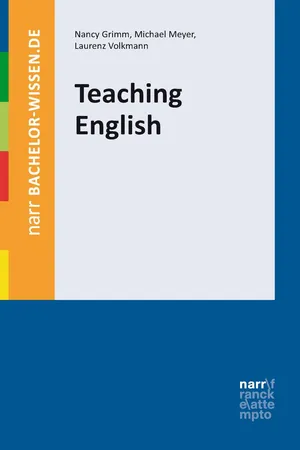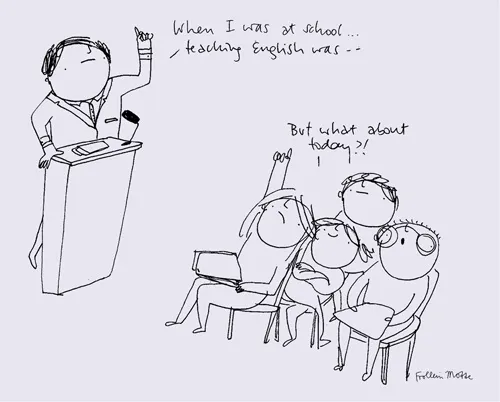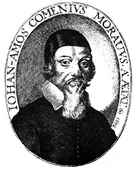
- 341 pages
- English
- ePUB (mobile friendly)
- Available on iOS & Android
Teaching English
About this book
Teaching English covers all of the major issues and current trends in language learning and teaching, such as the trends toward empiricism, constructivism, differentiation, learner- and output-orientation, intercultural learning, and the use of multimedia. This book bridges the gap between the suggestions of theoretical approaches to foreign language teaching and the practical needs of both the educators (regardless of the institutions they are teaching and the experiences they have gathered) as well as the students. It will help readers profit from the materials and reflected practices for use in their own classrooms. And lastly, the book offers optimal preparation for exams in university courses and in teacher-training seminars.
Tools to learn more effectively

Saving Books

Keyword Search

Annotating Text

Listen to it instead
Information
Unit 1 [1]The framework: history and politics
- 1.1 Teaching English as a Foreign Language
- 1.2 Current educational standards and curricula
- 1.3 Teacher education in GermanyRecommended reading

1.1 [2]Teaching English as a Foreign Language
1.1.1 The historical perspective


Table of contents
- Cover
- Titel
- Impressum
- Inhaltsverzeichnis
- Preface
- Unit 1 The framework: history and politics
- Unit 2 Challenges of the teaching profession
- Unit 3 TEFL as a transdisciplinary project
- Unit 4 From methods to principles
- Unit 5 Grammar and vocabulary
- Unit 6 Language competences, learning strategies, and the individual learner
- Unit 7 Intercultural and transcultural learning
- Unit 8 Literature matters
- Unit 9 Media: a balanced approach
- Unit 10 Lesson planning and classroom management
- Unit 11 Materials design
- Unit 12 Assessment and evaluation
- References
- Index
- Acknowledgments
- Hinweise zur E-Book-Ausgabe
Frequently asked questions
- Essential is ideal for learners and professionals who enjoy exploring a wide range of subjects. Access the Essential Library with 800,000+ trusted titles and best-sellers across business, personal growth, and the humanities. Includes unlimited reading time and Standard Read Aloud voice.
- Complete: Perfect for advanced learners and researchers needing full, unrestricted access. Unlock 1.4M+ books across hundreds of subjects, including academic and specialized titles. The Complete Plan also includes advanced features like Premium Read Aloud and Research Assistant.
Please note we cannot support devices running on iOS 13 and Android 7 or earlier. Learn more about using the app